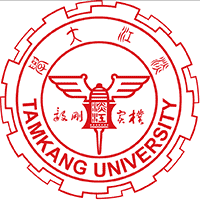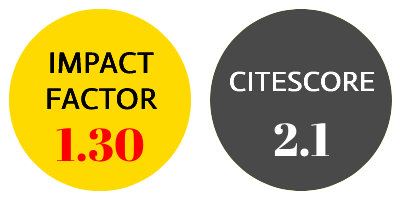REFERENCES
- [1] Papakonstantinou, N. and Sierla, S., “Generating an Object Oriented IEC 61131-3 Software Product Line Architecture from SysML,” Emerging Technologies & Factory Automation(ETFA), 2013 IEEE 18th Conference on, Cagliari, Italy, Sep. 10�13, pp. 1�8 (2013).
- [2] Dennis, A., Wixom, B. H. and Roth, R. M., Systems Analysis and Design, John Wiley & Sons (2014).
- [3] Shiue,Y.-C.,Lo,S.-H.,Tian,Y.-C.andLin,C.-W.“The Study of Salient Object and BoF with SIFT for Image Retrieval,” International Conference on Frontier Computing:Theory,Technologies and Applications FC2016, Tokyo, Japan, Jul. 13�15, pp. 853�864 (2016).
- [4] Khokher, A. and Talwar, R., “Content-based Image Retrieval: Feature Extraction Techniques and Applications,” International Conference on Recent Advances and Future Trends in Information Technology,Punjab, India, Mar. 21�23, pp. 9�14 (2012).
- [5] Liu,T.,Yuan,Z.,Sun,J.,Wang,J.,Zheng,N.,Tang,X. and Shum, H.-Y., “Learning to Detect a Salient Object,” Pattern Analysis and Machine Intelligence, IEEE Transactions on, Vol. 33, No. 2, pp. 353�367 (2011). doi: 10.1109/TPAMI.2010.70
- [6] Yuan, X., Yu, J., Qin, Z. and Wan, T., “A SIFT-LBP Image Retrieval Model Based on Bag of Features,” IEEE International Conference on Image Processing, Brussels, Belgium, Sep. 11�14, pp. 1061�1064 (2011).
- [7] Zhang, Z. and Liu, Z., “Fourth Normal Form and Free Redundancy for XML Document Based on Path Expression,” Computer Science and Network Technology (ICCSNT), 2012 2nd International Conference on, Changchun,China,Dec.29�31,pp.1818�1822(2012).
- [8] Drigas, A. S., Argyri, K. and Vrettaros, J., “Decade Review (1999-2009): Progress of Application of Artificial Intelligence Tools in Student Diagnosis,” International Journal of Social and Humanistic Computing, Vol. 1, No. 2, pp. 175�191 (2009). doi: 10.1504/ IJSHC.2009.031006
- [9] Tseng, C.-H., Chen, Y.-H. and Jiang, Y.-R., “The Implementation of an Automatic Web-driven Data Analysis Framework,” International Journal of Social and Humanistic Computing, Vol. 2, No. 3�4, pp. 150�165 (2017). doi: 10.1504/IJSHC.2017.084733
- [10] Dennis, A., Wixom, B. H. and Tegarden, D., Systems Analysis and Design: an Object-oriented Approach with UML, John Wiley & Sons, New York (2015).
- [11] Vogel-Heuser, B., Witsch, D. and Katzke, U., “Automatic Code Generation from a UML Model to IEC 61131-3 and System Configuration Tools,” Control and Automation, ICCA’05. International Conference on, Budapest,Hungary,Jun.26�29,pp.1034�1039(2005).
- [12] Thramboulidis, K. C., “Using UML in Control and Automation: a Model Driven Approach,” Industrial Informatics, INDIN’04. 2004 2nd IEEE International Conference on,Berlin,Germany,Jun.24�26,pp.587� 593 (2004).
- [13] Abdulganiyyi,N.andIbrahim,N.,“Semantic Abstraction of Class Diagram Using Logical Approach,” Information and Communication Technologies (WICT), 2014 Fourth World Congress on, Bandar Hilir, Malaysia, Dec. 8�11, pp. 251�256 (2014).
- [14] De Lucia, A., Gravino, C., Oliveto, R. and Tortora, G., “Data Model Comprehension: an Empirical Comparison of ER and UMLClass Diagrams,” Program Comprehension, ICPC. The 16th IEEE International Conference on, Amsterdam,The Netherlands, Jun. 10�13, pp. 93�102 (2008).
- [15] Arlow,J.andNeustadt,I., UML2 and the Unified Process: Practical Object-oriented Analysis and Design, Pearson Education, London (2005).
- [16] Bertino,E.,Guerrini,G.andMerlo,I.,“Trigger Inheritance and Overriding in an Active Object Database System,” IEEE Transactions on Knowledge and Data Engineering, Vol. 12, No. 4, pp. 588�608 (2000).
- [17] Dogac, A., Özsu, M. T., Biliris, A. and Sellis, T., Advances in Object-oriented Database Systems,Springer Science & Business Media, Berlin (2013).
- [18] Thalheim, B., Entity-relationship Modeling: Foundations of Database Technology, Springer Science &Business Media, Berlin (2013).
- [19] Bahmani, A. H., Naghibzadeh, M. and Bahmani, B., “Automatic Database Normalization and Primary Key Generation,” Electrical and Computer Engineering, CCECE 2008. Canadian Conference on, Niagara Falls, Canada, May 4�7, pp. 11�16 (2008).
- [20] Castellanos, M. and Saltor, F., “Semantic Enrichment of Database Schemes: an Object Oriented Approach,” Interoperability in Multidatabase Systems, IMS’91. Proceedings, First International Workshop on, Kyoto, Japan, Apr. 7�9, pp. 71�78 (1991).
- [21] Egyed, A., “Fixing Inconsistencies in UML Design Models,”Proceedings of the 29th international conference on Software Engineering, Minneapolis, USA, May 20�26, pp. 292�301 (2007).
- [22] Shaw, G. M. and Zdonik, S. B., “AQuery Algebra for Object-oriented Databases,” Data Engineering, Proceedings. Sixth International Conference on, Los Angeles, USA, Feb. 5�9, pp. 154�162 (1990).
- [23] Ambler, S., “About the third rule of class normalization,” Computing Canada, Vol. 22, No. 24. pp. 25�26 (1996).
- [24] Andonoff,E.,“Normalization of Object-oriented Conceptual Schemes,” International Conference on Advanced Information Systems Engineering, pp. 449� 462 (1993). doi: 10.1007/3-540-56777-1_24
- [25] Godin, R. and Valtchev, P., Formal Concept Analysis based Class Hierarchy Design in Object-oriented Software Development, Formal Concept Analysis, Springer, Heidelberg, Berlin, pp. 304�323 (2005). doi: 10.1007/11528784_16
- [26] Fowler, M., Refactoring: Improving the Design of Existing Code, Pearson Education, India (2009).
- [27] Itti, L., Koch, C. and Niebur, E., “A Model of Saliency-based Visual Attention for Rapid Scene Analysis,” IEEE Transactions on Pattern Analysis & Machine Intelligence, Vol. 20, No. 11, pp. 1254�1259 (1998). doi: 10.1109/34.730558
- [28] Ma,Y.-F.andZhang,H.-J.,“Contrast-based Image Attention Analysis by Using Fuzzy Growing,” Proceedings of the Eleventh ACM International Conference on Multimedia, Berkeley, USA, Nov. 2�8, pp. 374�381 (2003). doi: 10.1145/957013.957094
- [29] Pirnog, I., Oprea, C. and Paleologu, C., “Image Content Extraction Using a Bottom-up Visual Attention Model,” DigitalSociety, ICDS’09. Third International Conference on, Cancun, Mexico, Feb. 1�7, pp. 300� 303 (2009). doi: 10.1109/ICDS.2009.32
- [30] Wu, M. S. and Wu, S.-Y., Systems Analysis and Design,1 st ed., West Publishing Co., St. Paul, pp. 43�69 (1994).
- [31] Yonghui, W., Wenyun, J. and Aoying, Z., “Implementation and Proof for Normalization Design of Object oriented Data Schemes,” Technology of Object-oriented Languages and Systems, TOOLS-Asia 2000. Proceedings. 36th International Conference on, Xi’an, China, Oct. 30�Nov. 4, pp. 220�227 (2000).
- [32] Ojala, T., Pietikäinen, M. and Mäenpää, T., “Multiresolution Gray-scale and Rotation Invariant Texture Classification with Local Binary Patterns,” Pattern Analysis and Machine Intelligence, IEEE Transactions on., Vol. 24, No. 7, pp. 971�987 (2002). doi: 10.1109/ Tpami.2002.1017623
- [33] Lowe, D. G., “Object Recognition from Local Scaleinvariant Features,” Computer vision, The Proceedings of the Seventh IEEE International Conference on, Kerkyra, Greece, Sep. 20�27, pp. 1150�1157 (1999).
- [34] Mikolajczyk,K.andSchmid,C.,“ A Performance Evaluation of Local Descriptors,” Pattern Analysis and Machine Intelligence, IEEE Transactions on, Vol. 27, No. 10, pp. 1615�1630 (2005). doi: 10.1109/TPAMI. 2005.188


![Multi-scale contrast (photo courtesy of Liu, T., et al. [5]). Seven Steps for Object-oriented Normalization in Class Diagrams: Example of Jigsaw Puzzle Concept for Image Retrieval](/images/article_images/21/21_3_18.jpg)













